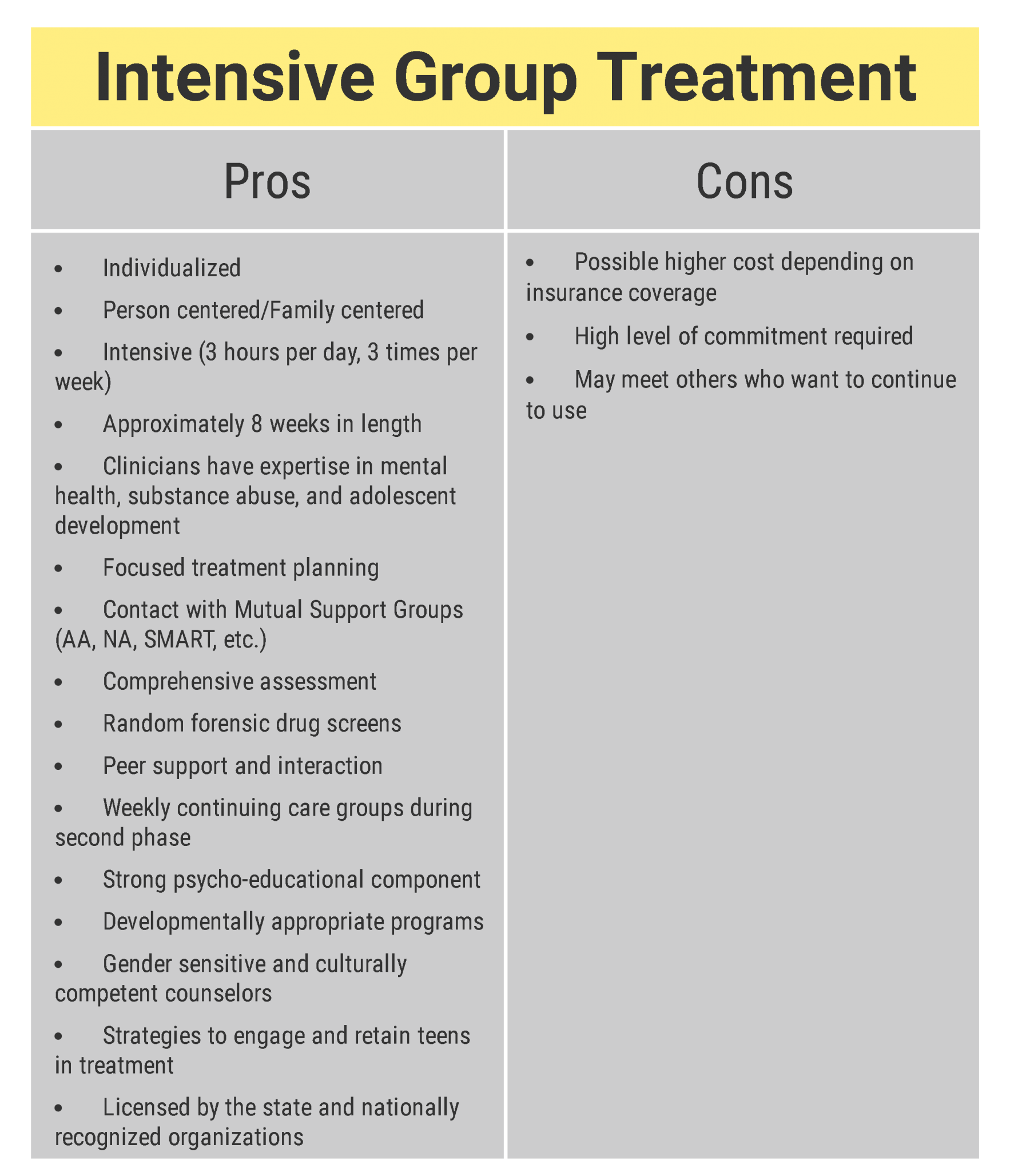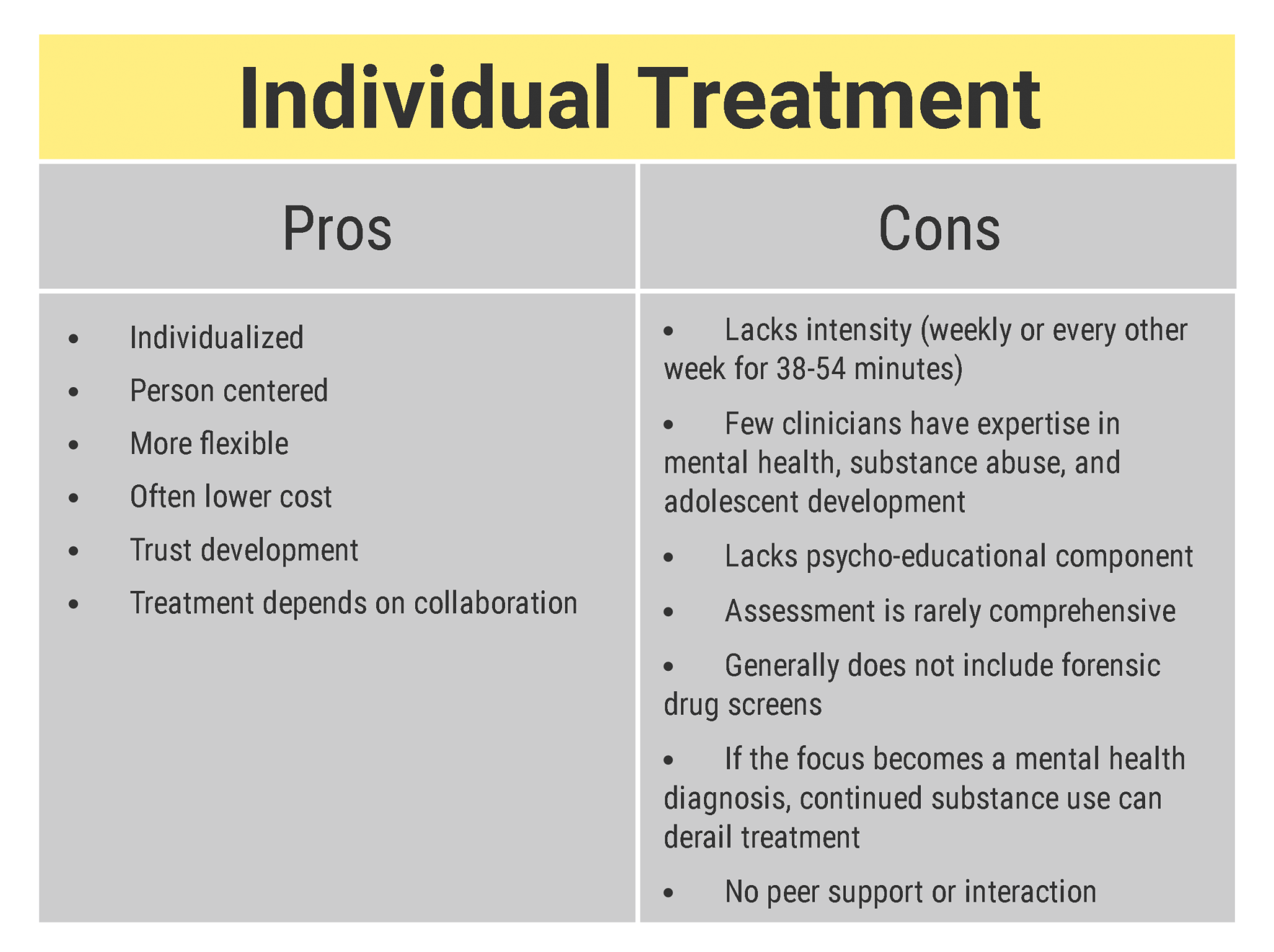
Treating Teens who Abuse Alcohol and Marijuana
Treating teens who abuse alcohol and marijuana is extremely important. Research has shown that nearly 75% of adolescents have used alcohol. Approximately 50% have used other substances by their senior year in high school. Teens who drink or use drugs heavily (more than once per week) are likely to have issues with memory, attention, information processing and executive functioning. These teens retain 10% less information than healthy substance-free teenagers.
It is vital for professionals to understand and practice what works to help teens who abuse alcohol and marijuana. Adolescents have distinctive social and developmental needs that must be considered for treatment to be successful. Well-meaning counselors often use treatment strategies that are successful with adults but may not work with teens.
Research asserts that intensive group treatment is the most effective treatment for adolescents with a substance abuse diagnosis. There is also the belief that individual counseling can be successful. Family involvement greatly increases the effectiveness of both treatment modes.
Research shows intensive group treatment is more effective for teens.
What works to help teens who abuse alcohol and marijuana is group treatment that is intensive in nature. This is primarily a result of the focus and strategies used for each type of treatment when treating those with active substance use disorders. The following graphics illustrate the pros and cons of these two types of treatment. Both can be valuable depending on when they are initiated, the level of cooperation with the process, and the goals of the counseling.
Intensive Group Treatment has these qualities:

Individual Treatment has these qualities:

How are adolescents unique?
Adolescents, who seek treatment for a substance use disorder, have often experienced rapid progression from their first use to when problems start. Furthermore, teens have more co-occurring psychiatric problems than their adult counterparts. They have higher rates of accidents, suicide, and violent crimes. In addition, they have more difficulty controlling their impulses, seeking instant gratification, and planning ahead. These are a result of a lack of executive function. Most individual treatment options can not easily cope with the multiplicity and severity of these issues.
Why Choose IOP?
Adolescent Intensive Outpatient Treatment is specifically structured to treat teens in spite of their judgment deficits. Consequently, it gives clients a specific structure for healthy peer social learning. In contrast, the nature of individual counseling doesn’t allow this to occur because it is one-to-one with an adult.
Individual treatment may seem appealing to a teen who wants to focus on anything but substance use. Teens need to engage in honesty and a commitment to change in any therapy situation. Group treatment is more likely to bring out these qualities because of the unique group response system. Developing socializing techniques, role modeling, behavioral rehearsal, and peer feedback are at the core of group treatments. Unlike individual treatment, groups have the benefit of creating a social environment. This has also been helpful with relapse prevention.
What works to help teens who abuse alcohol and marijuana varies based on their stage of recovery, maturity, and any co-occurring problems. Intensive Outpatient or other intense programming are most effective early in recovery. Individual treatment is highly effective once abstinence is established.
When considering where to place your child or adolescent client always consider what works most effectively to help teens who abuse alcohol and marijuana.